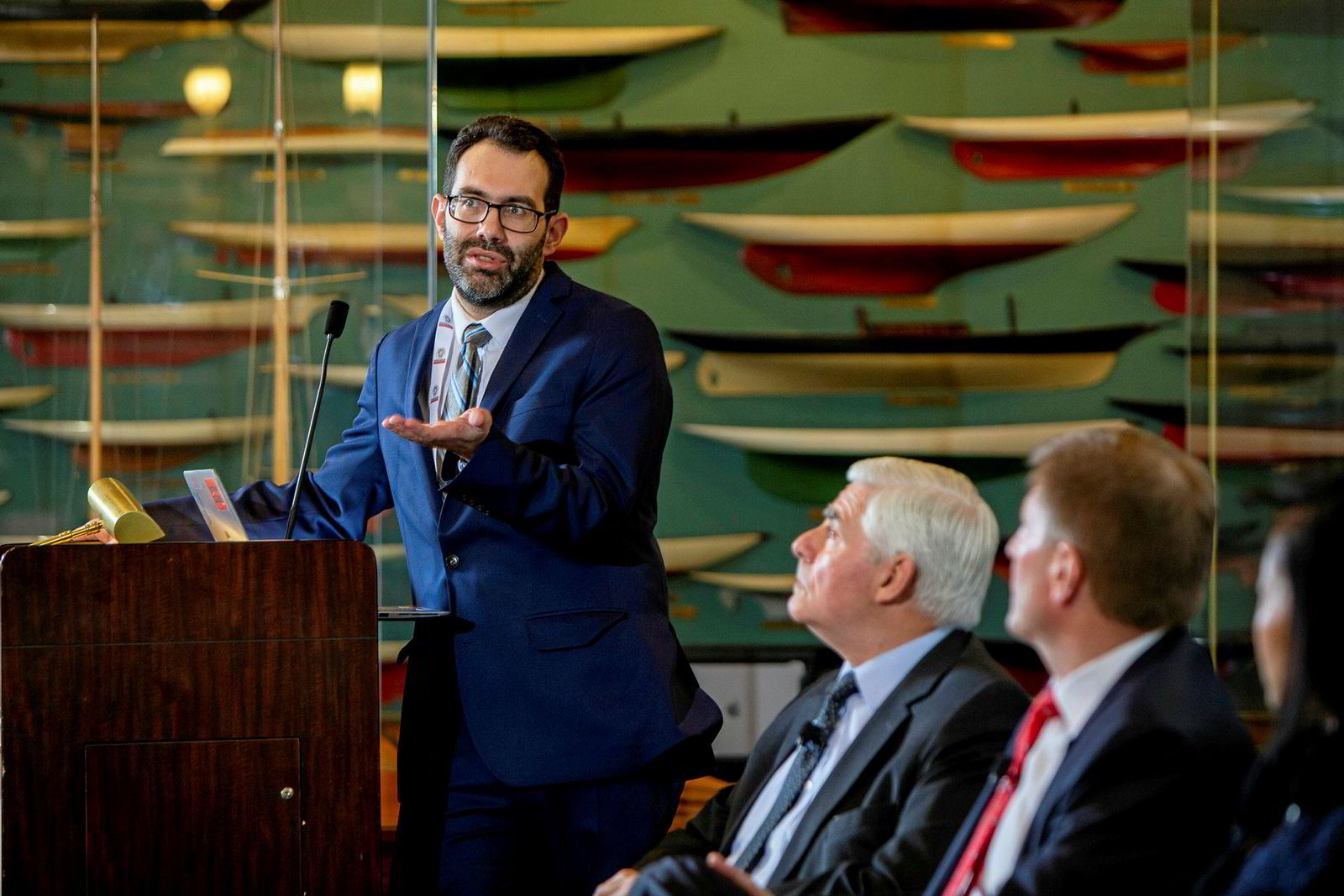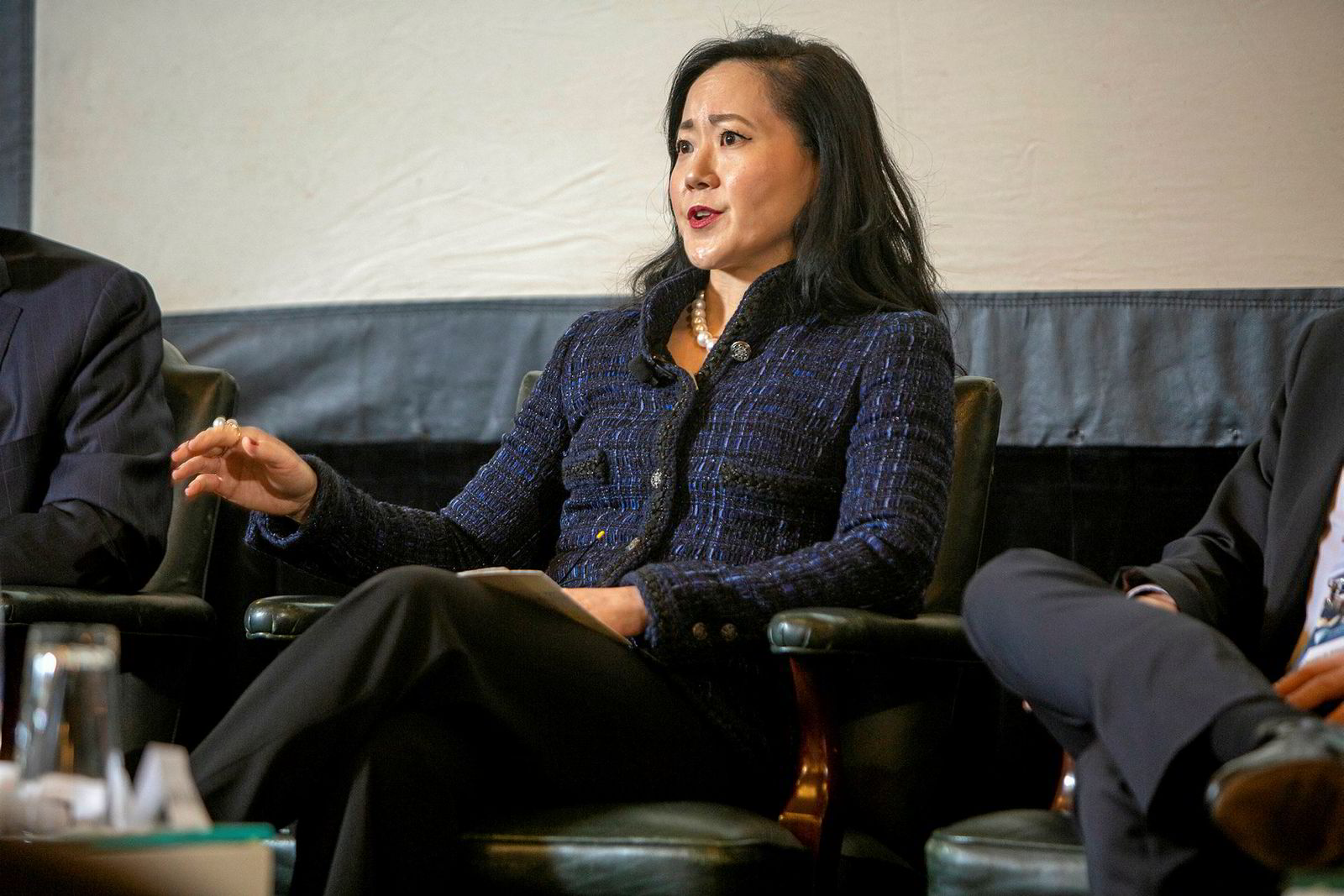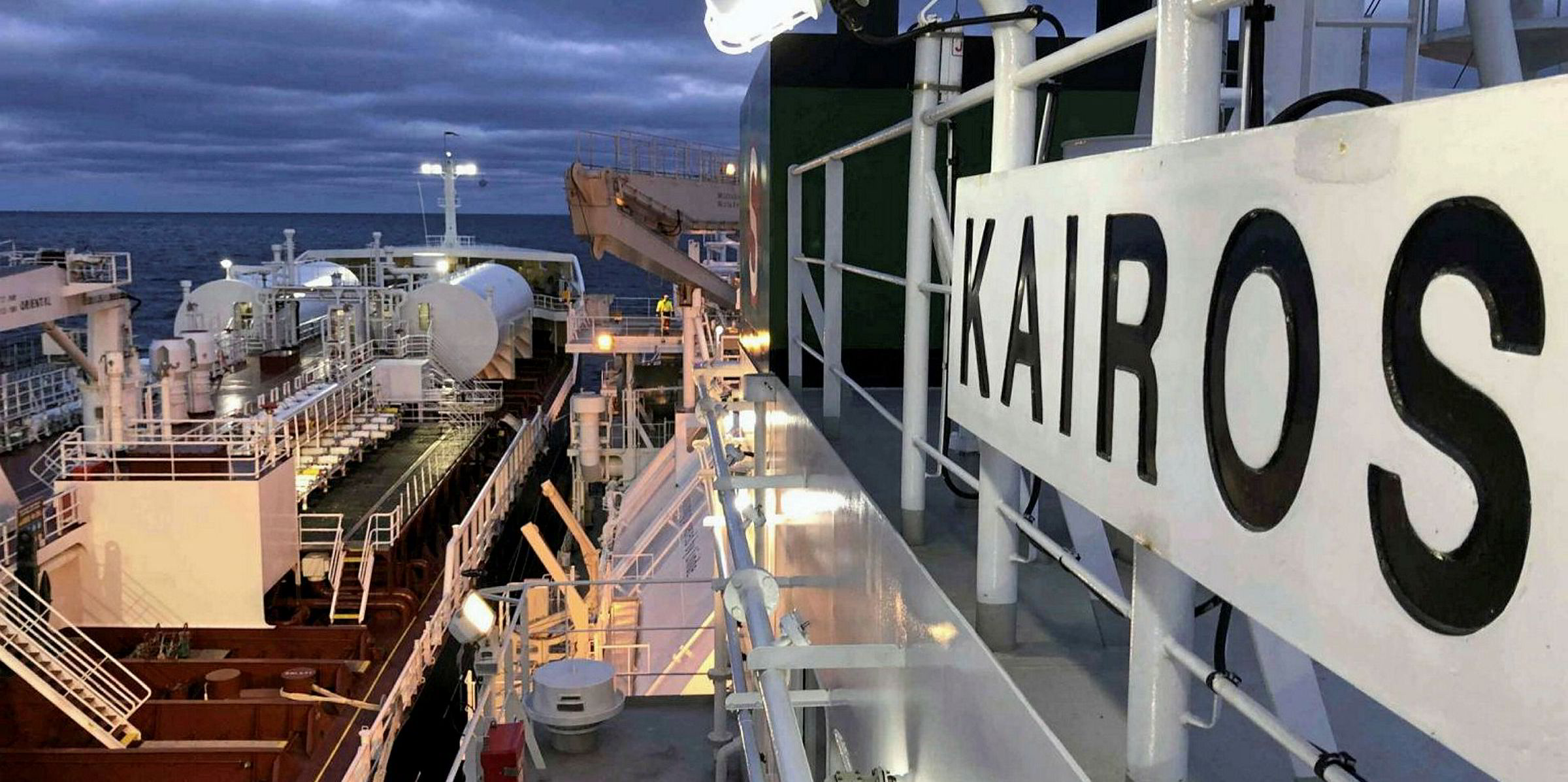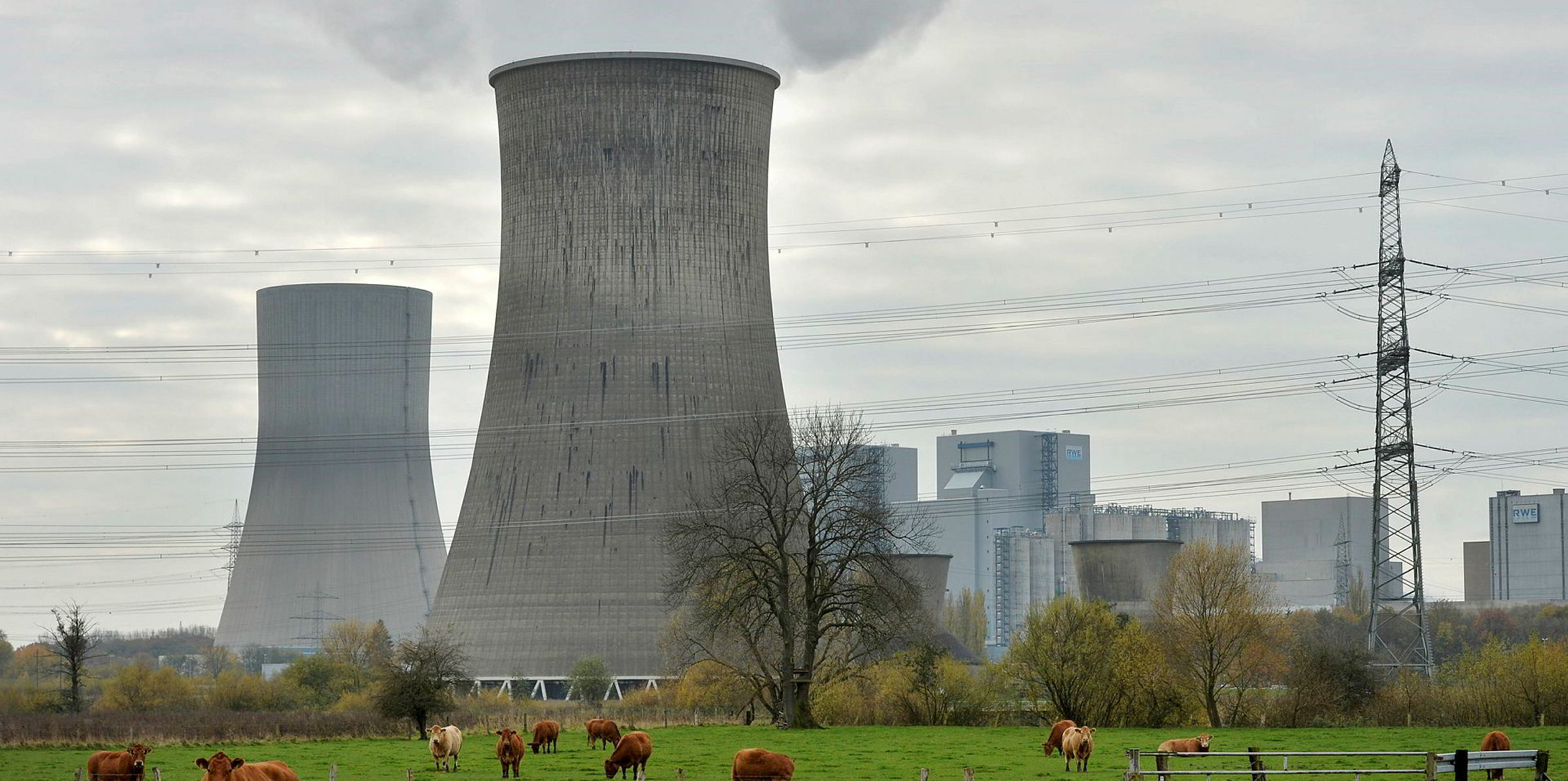Four of the largest US-listed shipowners are already reporting their carbon emissions in public filings or plan to do so in their next annual reports.
That was the word from executives of Scorpio Tankers, Scorpio Bulkers, Star Bulk Carriers and International Seaways during last week’s TradeWinds Shipowners Forum New York.
The reporting plans were part of a wide-ranging discussion within the forum that included broader environmental, social and corporate governance concerns, and the current fallout from the coronavirus outbreak that originated in China.
Under new regulations, owners are required to report their CO2 emissions levels to the IMO.
But there are no rules related to their public reporting with the US Securities and Exchange Commission or equivalent securities overseers internationally.
'Sustainability' report
However, Star Bulk president Hamish Norton said the world’s largest dry bulk company already publishes a “sustainability” report on its website.
The 80-page document was essential to the Petros Pappas-led owner receiving a favourable rating from Dutch firm Sustainalytics, which previously had said a lack of data had left it unable to render an endorsement.
Robert Bugbee, president at both Scorpio Bulkers and Scorpio Tankers, said the group’s public bulker and tanker companies will report carbon levels within their next annual reports, a policy echoed by International Seaways chief financial officer Jeffrey Pribor.
Industry watchdog Michael Webber of Webber Research & Advisory has indicated that he will make listed companies’ public reporting of carbon emissions part of his annual corporate governance “scorecard” this spring.

For the time being, Webber will simply weigh up whether or not owners report their emissions, not make a judgement about the levels reported. But the latter may come into play in future reports.
The Scorpio companies, International Seaways and Star Bulk all appeared on a financial panel during the TradeWinds forum.

All are adopters of open-loop exhaust gas scrubbers.
Star Bulk was a pioneer in adopting the technology and already has more than 90 of the devices in use.
Scorpio is in the process of installing more than 100 scrubbers between the two companies, while International Seaways is putting 10 scrubbers on VLCCs, the largest tankers in its fleet. The latter’s move will account for 40% of its fuel consumption.
But it was not all about scrubbers and carbon reporting on the panels.
Foremost Shipping chief executive Angela Chao ranked the coronavirus fears at the top of her list of disruption factors menacing the industry.
“The clear answer is the coronavirus,” said Chao, who is based in New York but has deep personal and family ties to China.
“I still think the markets are underestimating the effects — not fully appreciating the impact on China.”
Chao noted that even as the coronavirus is commonly compared to severe acute respiratory syndrome (SARS), which struck China in 2003, times have changed.
Bigger impact
While SARS dented China’s GDP by 1%, a corresponding 1% hit today would be 10 times greater, Chao said.
At the same time, since 2014, the Chinese have been the world’s largest spenders on tourism.
“The knock-on effect on other countries’ economies is enormous,” Chao said.
The executive drew agreement from other members on a shipowners’ panel.
"It's underestimated," said Kristin Holth, DNB's executive vice president and global head of ocean industries.
"It's really having an impact on GDP, not just in China but in all the world.”
Ridgebury Tanker chief executive Robert Burke agreed.
Ground zero
"It's a lot easier to hear from someone who is at ground zero or close to ground zero express such concern because I hear on the radio that Wall Street shrugged it off yesterday," he said.
"I always think, what does that mean?”
He said the illness' impact is affecting every area of shipping from supplies to crew procurement from China.
"It's a big concern for us," he said.
But when the virus scare ends, shipping will still be looking for its next alternative propulsion source — and recent discussion indicates the answer will not come easily.
With supposedly cleaner alternatives, such as very low-sulphur fuel oil and LNG already getting ripped by environmental activists, an answer may be years in the making.












